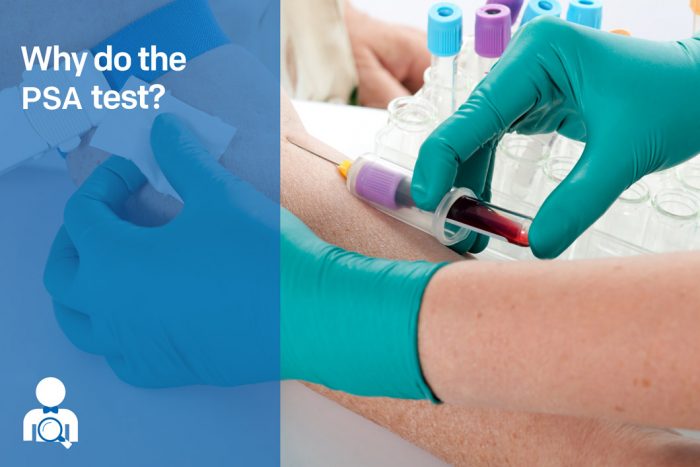The PSA test is often discussed when it comes to screening for prostate cancer. Prostate specific antigen (PSA) is an enzyme produced by the prostate that can be analyzed from a single blood sample. The laboratory test measures nanograms per milliliter of free and bound APS in the blood. Quantities considered normal can vary according to age.
What can the PSA test reveal?
The test alone is not enough to make a diagnosis, but provides a variety of information about a man’s health. A high PSA level can indicate different disorders.
The PSA test results may reveal benign prostatic hyperplasia, i.e., a bulky prostate, prostatitis, which is an inflammation or infection of the prostate, urinary tract infection, or a prostate cancer.
Since there are various possibilities, it means that about 75 % of men with PSA levels will not have cancer. Therefore, other tests may be necessary to determine the nature of the problem, if there is one, especially if there is the possibility of cancer.
PSA and Prostate cancer
The PSA is an accurate tool for early detection of prostate cancer, but only in combination with a rectal examination. However, it is also possible that a normal PSA can still be concealing a cancer.
There are several variables that can influence the chances of your having prostate cancer. Age and family history are also very important factors when it comes to this disease.
For these reasons, the PSA test is necessary for diagnosis, whether for cancer or something else. However, it does not guarantee an exact result on its own, especially since your doctor will need to consider several other factors before recommending a specialist.



